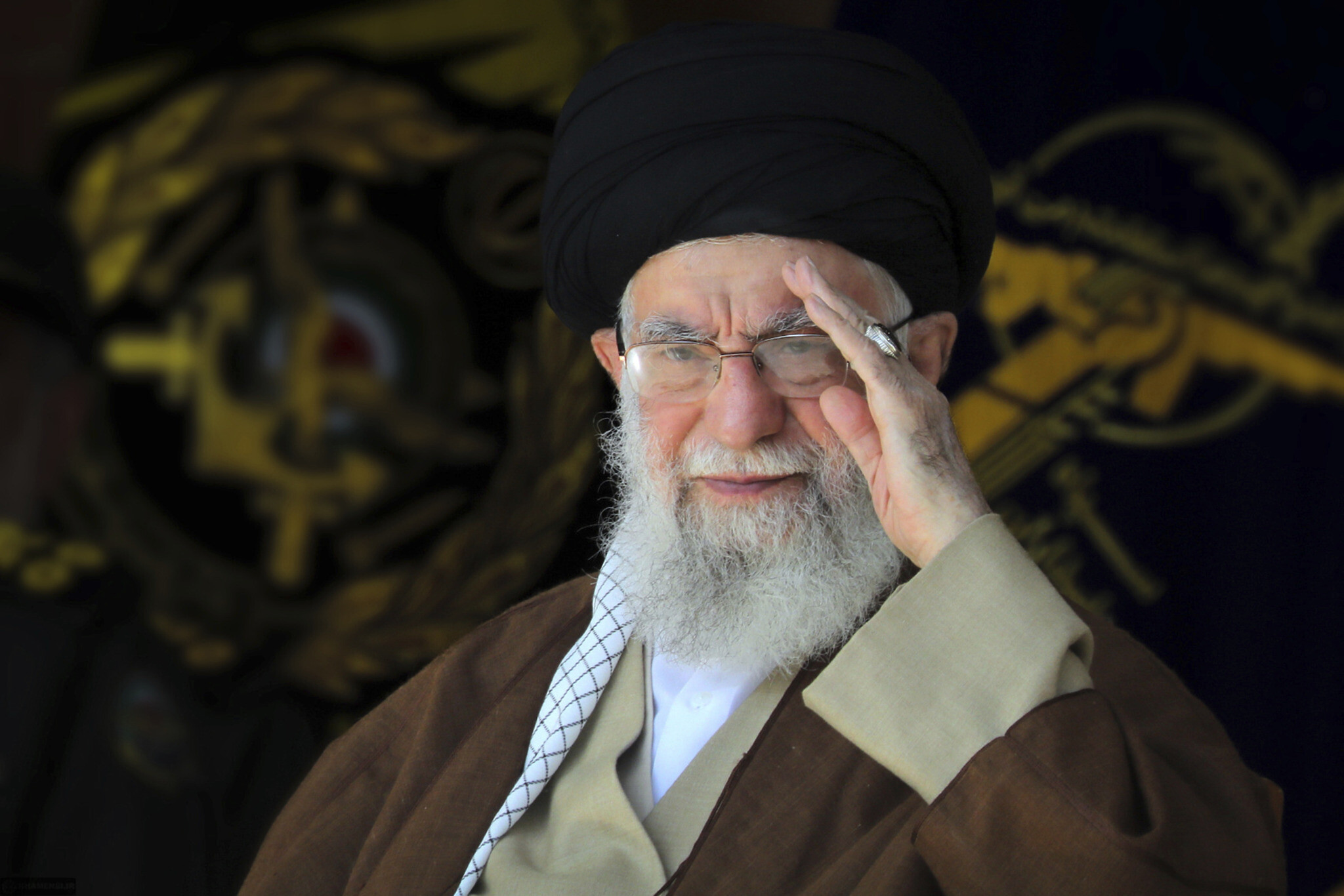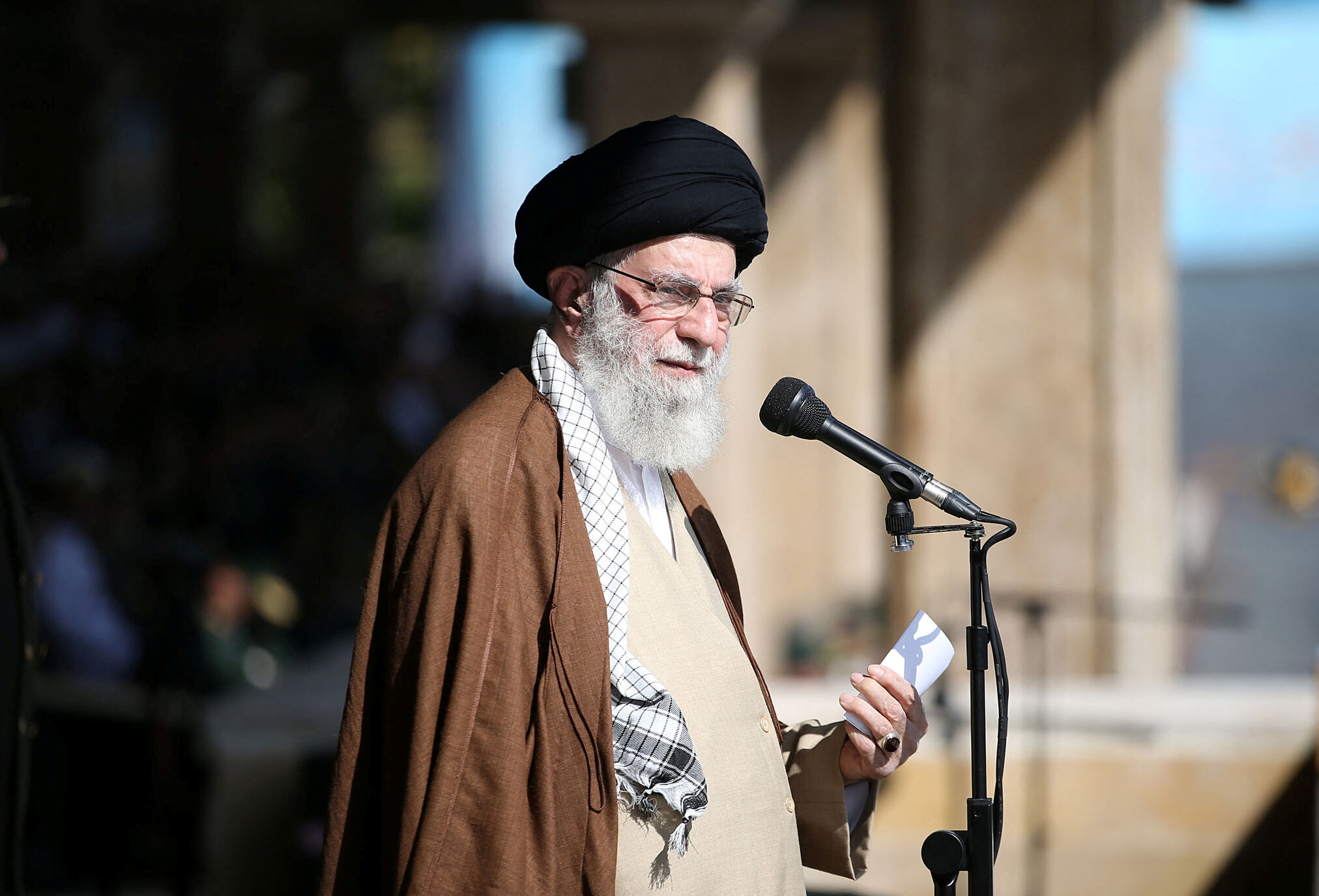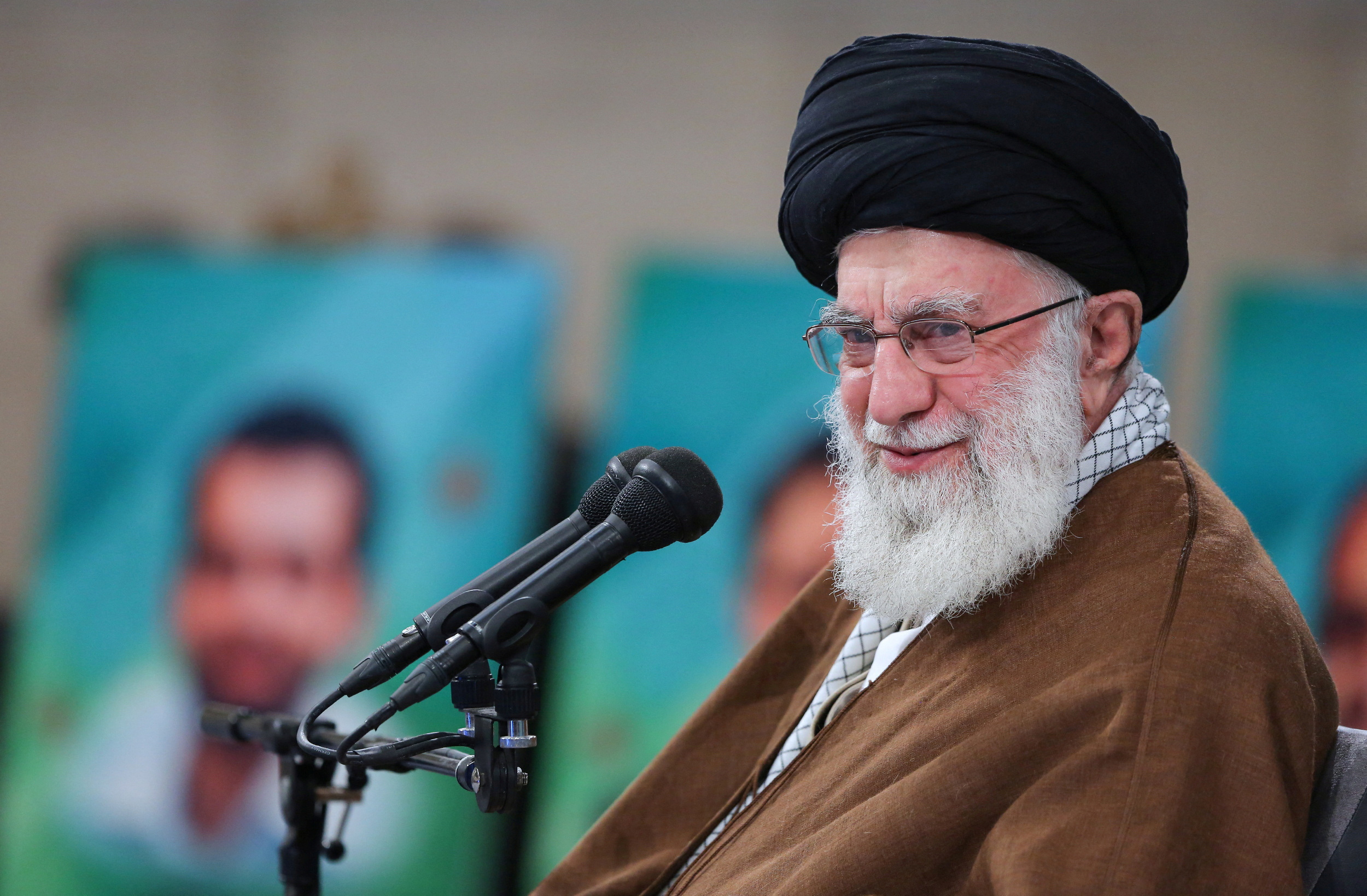Ali Khamenei’s Early Life and Education
Ali Khamenei was born on July 17, 1939, in Mashhad, Iran. His father, Seyyed Javad Khamenei, was a religious scholar and a descendant of the Prophet Muhammad. His mother, Khadijeh Mihani, was a housewife. Khamenei was the fifth of eight children.
Khamenei’s early life was shaped by his religious upbringing. He began studying the Quran and Islamic jurisprudence at a young age. He also attended traditional Iranian schools, where he studied Persian literature, history, and philosophy.
Family Background
Khamenei’s family was deeply involved in religious and political activities. His father was a prominent Shia cleric and a supporter of the Iranian Revolution. His mother was also a devout Muslim and a supporter of the revolution.
Education
Khamenei began his religious education at the age of five. He studied under some of the most renowned Shia scholars in Iran. In 1960, he went to Qom to continue his studies. Qom is a major center of Shia learning and home to some of the most prestigious religious schools in the world.
Ali Khamenei, the Supreme Leader of Iran, is a powerful figure who oversees the country’s military and political affairs. His influence extends to the iran helicopter program, which has been developing advanced aircraft for both military and civilian use. Khamenei has played a key role in shaping the program’s direction, ensuring that it aligns with Iran’s strategic goals.
Khamenei studied at the Ayatollah Borujerdi School and the Imam Khomeini School. He quickly became one of the top students in both schools. In 1964, he received his degree in Islamic jurisprudence from the Imam Khomeini School.
Influences
Khamenei was influenced by a number of people and events during his early life. The most important influence was his father, who instilled in him a deep love of Islam and a commitment to social justice.
Khamenei was also influenced by the Iranian Revolution. The revolution was a major turning point in his life. He became a close associate of Ayatollah Khomeini, the leader of the revolution. Khomeini’s teachings had a profound impact on Khamenei’s thinking.
Political Career and Rise to Power

Ali Khamenei’s political journey began during his early involvement in the Iranian Revolution, where he played a significant role as a close associate of Ayatollah Ruhollah Khomeini.
In the post-revolutionary government, Khamenei held various positions, including the Presidency from 1981 to 1989. During his presidency, he played a key role in consolidating the new Islamic Republic and overseeing the Iran-Iraq War.
Factors Contributing to Khamenei’s Rise to Supreme Leader
Several factors contributed to Khamenei’s rise to the position of Supreme Leader in 1989:
- Close association with Khomeini: Khamenei’s close personal and ideological ties with Ayatollah Khomeini gave him a strong foundation within the revolutionary establishment.
- Political acumen and leadership qualities: Khamenei’s political savvy, charisma, and ability to navigate complex political dynamics made him a respected figure among the Iranian leadership.
- Military background: As a former commander in the Revolutionary Guards, Khamenei had a strong understanding of military affairs and the importance of national security.
- Support from the military and clergy: Khamenei enjoyed significant support from both the military and the religious establishment, which solidified his position as the successor to Khomeini.
Ideological Beliefs and Policies

Ali Khamenei is a devout Shia Muslim, and his religious beliefs deeply influence his political ideology and policies. He is a staunch advocate of the concept of velayat-e faqih, or “rule of the jurist,” which holds that Islamic law should be implemented by a qualified Islamic jurist, or faqih.
Khamenei’s interpretation of Shia Islam emphasizes the importance of justice, equality, and the fight against oppression. He believes that the Islamic Republic of Iran should be a model of Islamic governance, and he has worked to promote its values both domestically and internationally.
Domestic Policies
Domestically, Khamenei has pursued policies aimed at strengthening the role of Islam in Iranian society. He has overseen the expansion of Islamic education and culture, and he has supported the implementation of strict Islamic laws. He has also cracked down on dissent and opposition to his rule.
Foreign Policy
In foreign policy, Khamenei has been a vocal critic of the United States and Israel. He has supported anti-Western movements around the world, and he has been accused of sponsoring terrorism. He has also worked to expand Iran’s influence in the Middle East, and he has been a key player in the Syrian civil war.
Khamenei’s ideological beliefs and policies have had a profound impact on Iran. He has transformed the country into a theocratic state, and he has made it a major player in the Middle East. His policies have also been controversial, and he has been accused of human rights abuses and of supporting terrorism.
Role in the Iranian Government
As the Supreme Leader of Iran, Ali Khamenei holds the highest position in the country’s political hierarchy. His powers and responsibilities are extensive, encompassing both religious and political domains.
The enigmatic Ali Khamenei, Supreme Leader of Iran, remains a central figure in the nation’s political landscape. As the country’s highest authority, he exerts significant influence over key decisions, including the appointment of the President. For the latest updates on Iran’s presidential situation, refer to iran president update . Khamenei’s guidance and oversight continue to shape Iran’s political trajectory.
Khamenei’s role in shaping Iran’s political system and decision-making process is significant. He has the authority to appoint and dismiss the President, the Chief Justice, and the members of the Guardian Council. He also commands the armed forces and has the final say on all major policy decisions.
Relationship with Other Branches of Government, Ali khamenei
The Supreme Leader’s relationship with other branches of government is complex and multifaceted. While the President and the Parliament are elected by the people, their powers are limited by the authority of the Supreme Leader.
The Guardian Council, a body of clerics appointed by the Supreme Leader, has the power to veto laws passed by the Parliament. This gives Khamenei significant influence over the legislative process.
The judiciary is also subject to the Supreme Leader’s oversight. He appoints the Chief Justice and can intervene in judicial decisions if he deems it necessary.
In the grand tapestry of Iranian history, the figure of Ali Khamenei stands as a towering monolith. As the Supreme Leader, he has guided the nation through turbulent times, weathering storms with unwavering resolve. His influence extends far beyond the borders of Iran, casting a long shadow over regional politics.
The recent helicopter crash involving the Iranian president has once again brought Khamenei’s leadership into sharp focus, underscoring his pivotal role in shaping the destiny of his nation.
Foreign Policy and International Relations

Ali Khamenei’s foreign policy approach is characterized by a strong anti-Western stance, particularly towards the United States. He views the West as a threat to Iran’s sovereignty and independence and has consistently criticized Western policies in the Middle East.
Iran’s relationships with other countries in the region have been strained under Khamenei’s leadership. Iran has been accused of supporting terrorist groups and interfering in the affairs of other countries, leading to tensions with Saudi Arabia, Israel, and the United States.
Khamenei’s leadership has had a significant impact on Iran’s global standing. Iran is now seen as a pariah state by many countries, and its economy has suffered as a result of international sanctions. However, Iran has also forged closer ties with Russia and China, which have provided economic and political support.
Controversies and Criticisms: Ali Khamenei
Ali Khamenei’s leadership has been marked by controversies and criticisms, both within Iran and internationally. Some of the most significant issues include allegations of human rights abuses, suppression of dissent, and corruption.
Critics argue that Khamenei has overseen a crackdown on political opponents, journalists, and activists, leading to arbitrary arrests, torture, and extrajudicial killings. They also point to the regime’s strict censorship of the media and the internet, as well as its restrictions on freedom of assembly and expression.
Human Rights Abuses
Khamenei has been accused of overseeing widespread human rights abuses in Iran, including the arbitrary detention and torture of political prisoners, the suppression of freedom of speech and assembly, and the execution of dissidents.
- In 2019, Amnesty International reported that Iran had executed at least 251 people, the highest number in the world after China.
- In 2020, the United Nations Special Rapporteur on Iran expressed concern over the “alarming increase” in the use of the death penalty in the country.
- In 2021, Human Rights Watch reported that Iranian security forces had used excessive force against protesters, resulting in the deaths of dozens of people.
Khamenei’s supporters argue that these measures are necessary to maintain stability and security in Iran. They point to the country’s history of political instability and the threat posed by foreign powers, such as the United States and Israel.
Suppression of Dissent
Khamenei has been accused of suppressing dissent in Iran, both through the use of force and through the control of the media and the internet.
- In 2009, the Iranian government cracked down on protests following the disputed presidential election, resulting in the deaths of dozens of people.
- In 2017, the government arrested hundreds of people for participating in protests against economic conditions.
- In 2019, the government shut down the internet and mobile phone networks in an attempt to quell protests over the rising price of fuel.
Khamenei’s supporters argue that these measures are necessary to maintain order and prevent chaos. They point to the fact that Iran is a Shia Muslim country and that the government is responsible for protecting the country’s Islamic values.
Corruption
Khamenei has also been accused of corruption, both personally and through his family members.
- In 2013, the New York Times reported that Khamenei’s son, Mojtaba Khamenei, had amassed a fortune of billions of dollars through corrupt business dealings.
- In 2015, the Panama Papers revealed that Khamenei’s brother, Hadi Khamenei, had hidden millions of dollars in offshore accounts.
- In 2018, the United States imposed sanctions on Khamenei’s son, Mojtaba, for his involvement in human rights abuses and corruption.
Khamenei’s supporters deny these allegations and argue that they are part of a campaign by Western powers to discredit him and the Iranian government.
The controversies and criticisms surrounding Ali Khamenei’s leadership have had a significant impact on his public image and legitimacy. He is seen by many Iranians as a repressive dictator who has stifled dissent and overseen widespread human rights abuses. However, he also has a strong base of support among conservative Iranians who view him as a defender of Islam and the Iranian Revolution.
Legacy and Impact
Ali Khamenei’s legacy as Supreme Leader of Iran is complex and multifaceted. His long tenure has been marked by both achievements and controversies.
Khamenei has played a significant role in shaping Iran’s political, social, and economic development. He has been a key figure in the country’s nuclear program, which has been a source of both pride and international tension. He has also overseen the suppression of dissent and the expansion of the Islamic Revolutionary Guard Corps (IRGC), which has become a powerful force in Iranian society.
Contributions to Iran’s Development
- Guiding Iran through the Iran-Iraq War and the subsequent reconstruction period.
- Presiding over a period of economic growth and development, particularly in the oil and gas sector.
- Supporting the development of Iran’s nuclear program, which he sees as a deterrent against foreign aggression.
- Expanding the role of the IRGC in Iranian society, both militarily and economically.
Potential Implications for Iran’s Future
- Khamenei’s legacy will likely continue to be debated for years to come.
- His policies have had a profound impact on Iran’s domestic and foreign policy, and their effects will continue to be felt for some time.
- The future of Iran will depend in part on how his successor manages the challenges facing the country.